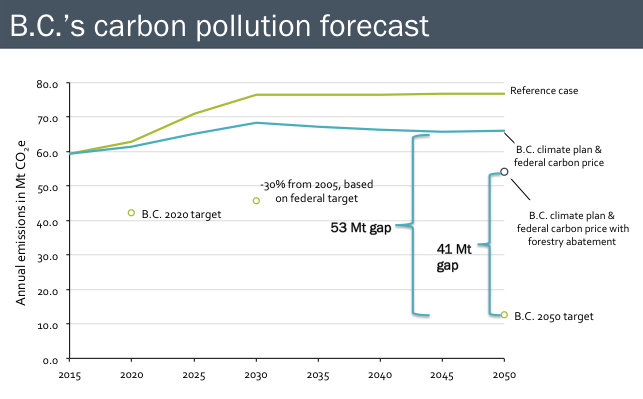Clean Energy Canada and the Pembina Institute hosted a public online forum about the state of British Columbia’s climate policies on February 3.
The one-hour event featured guest speakers from the City of Vancouver, Thompson Rivers University, and National Observer, who shared their perspectives on climate action in the province. A Q&A session followed.
We also outlined the results of the first independent assessment of B.C.’s climate plan in combination with the federal government’s carbon price schedule. (Navius Research prepared the analysis for the Pacific Institute for Climate Solutions, Pembina Institute, and Clean Energy Canada.)
Media advisory: Road to B.C. election heats up with climate forum
Join the conversation on Twitter: #BCClimateVote
Watch the video
B.C.'s Carbon Pollution and the 2017 Election on YouTube
Slides
Media coverage
- Roundhouse Radio: How much does climate change matter to most BC voters?
- Canadian Green Tech: Advice to BC government for dealing with rising greenhouse gas emissions
- iPolitics: The Drilldown: Bennett to sign deal with Métis Nation of Ontario
Speakers
- Andrea Reimer, councillor, City of Vancouver
- Joel Wood, assistant professor, School of Business and Economics, Thompson Rivers University
- Elizabeth McSheffrey, senior national reporter, National Observer
- Jeremy Moorhouse, senior analyst, Clean Energy Canada
Moderator
- Josha MacNab, B.C. director, Pembina Institute
Learn more
Report: Modelling the Impact of the Climate Leadership Plan & Federal Carbon Price on B.C.’s Emissions
Media release: B.C. climate plan leaves massive gap to carbon pollution targets
Blog: B.C.’s latest climate plan fails its most important test

